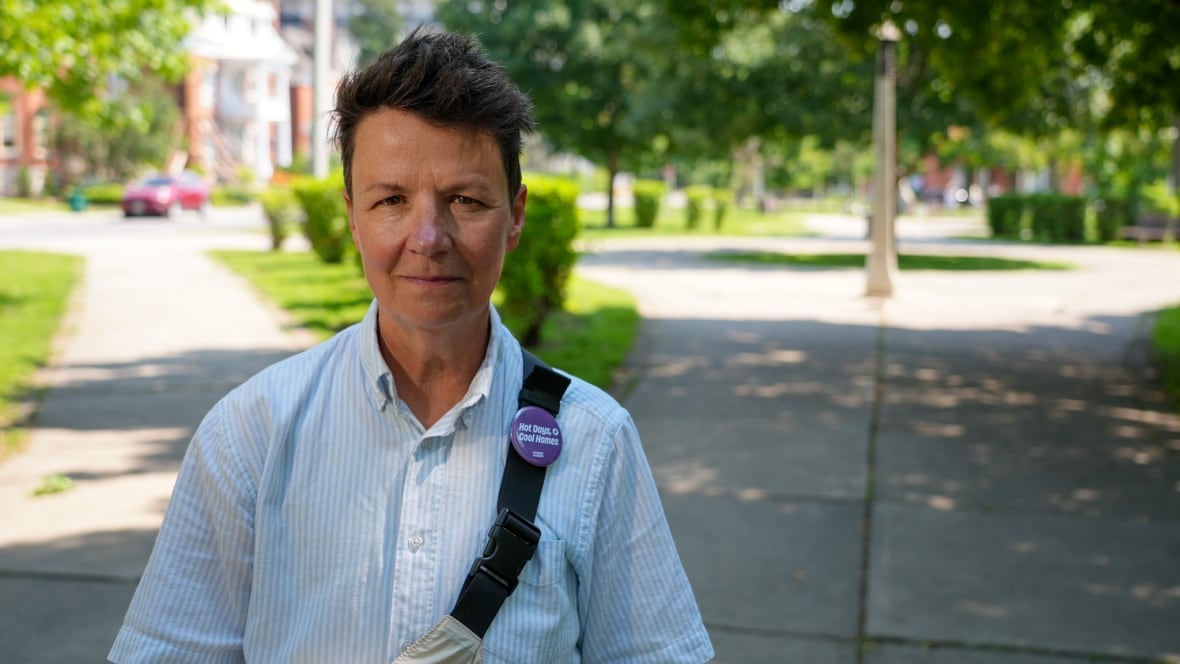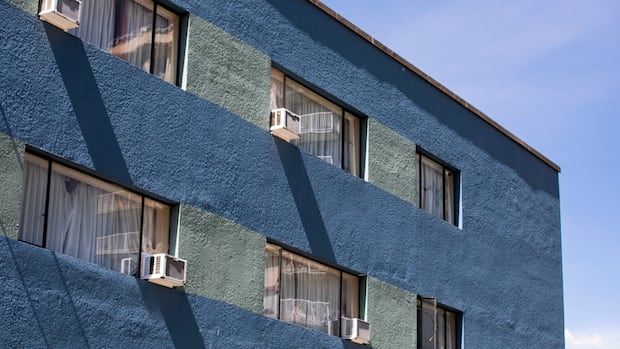Landlords will need help if temperature law becomes reality, advocacy group says
Ottawa Centre MPP plans to introduce motion at Queen's Park this fall
As an Ottawa MPP puts forward a plan to require Ontario landlords to provide renters with air conditioning, one representative for local landlords says building owners will need support for expensive and time-consuming upgrades.
In early July, Catherine McKenney, the NDP's housing critic and representative for Ottawa Centre, said they plan to bring a motion to Queen's Park this fall that would cap apartment temperatures at 26 C.
"We are prepared to do our part," said John Dickie, chair of the Eastern Ontario Landlord Organization, a local advocacy group.
"But we also think that the responsibility for the safety of [low-income people] — and let's face it, it's low-income people who have this problem — that's a responsibility for society at large, for everyone, not just for the people who happen to own the buildings where these people make their homes."
According to Statistics Canada, extreme heat events between 2000 and 2020 led to 670 more deaths than usual across Canada's 12 largest cities. Ontario does not track the number of heat-related deaths in the province.
Dickie told CBC Radio's Ottawa Morning people are "rightly" concerned about tenants' health, but "the devil is in the details."

Retrofitting programs would help
In Ontario, landlords are not required by law to provide air conditioning.
If a lease allows, a tenant may install their own AC unit. But if a landlord says no, the tenant's only other option is to appeal to the Landlord and Tenant Board.
Owners of buildings without air conditioning have several concerns about McKenney's plan, Dickie said, but possibly the largest is the electricity.
Electrical systems in buildings — particularly older ones which may have been wired differently — may not be able to keep up with 24/7 cooling, he said.
Governments could offer programs to help landlords perform retrofits, Dickie suggested, something that could have positive environmental effects, too, as buildings could then become more energy efficient.
While there's a "bit of a smorgasbord" of programs available, more are needed to target buildings with low-income tenants, said Jacqueline Wilson, a lawyer with the Canadian Environmental Law Association (CELA).
"I think everyone appreciates that there's some buildings where it's more complex than others," she said.
"[At the federal, provincial and municipal levels] there should be funding available for those landlords to get assistance to meet the requirements quickly and ideally in a way that is environmentally sustainable."
'Landlords are rich people'
All three levels of government have overlapping jurisdictions on this issue, Wilson explained, so it's crucial they all take action to make a maximum temperature law a reality.
That's something that Hassan Youssouf thinks is possible, despite the difficulty.
Youssouf has worked with the City of Ottawa on this issue for the Ottawa branch of the Association of Community Organizations for Reform Now (ACORN).
Landlords have a responsibility to work with those levels of government too, he argued, so that the costs aren't simply passed down to those who can least afford them: the renters.
"We know that landlords are rich people," he said, adding that even those who own a small or old building are "well-off."
"If they invest in their buildings and their homes, it's good for them in the long run and it's good for the people who live there."

But putting the onus on the landlord is "the easy way out," Dickie argued.
"Everyone thinks landlords are, by definition, rich because they own a building — except that often really it's the bank that owns the building," he said.
If landlords are mandated to install air conditioning but can't afford it, they may have to sell and get out of the business, Dickie said. But finding a buyer could be a challenge, he added — especially if the building is old, or if tenants are paying low rents because of rent control.
"[Those buildings] are not very viable economic propositions," he said. "And it's society that has imposed that on the property owner. And now, at least in our view, it should be for society to help solve the problem that society has created."

With files from Jayden Dill, Isabel Harder and CBC Radio's Ottawa Morning


